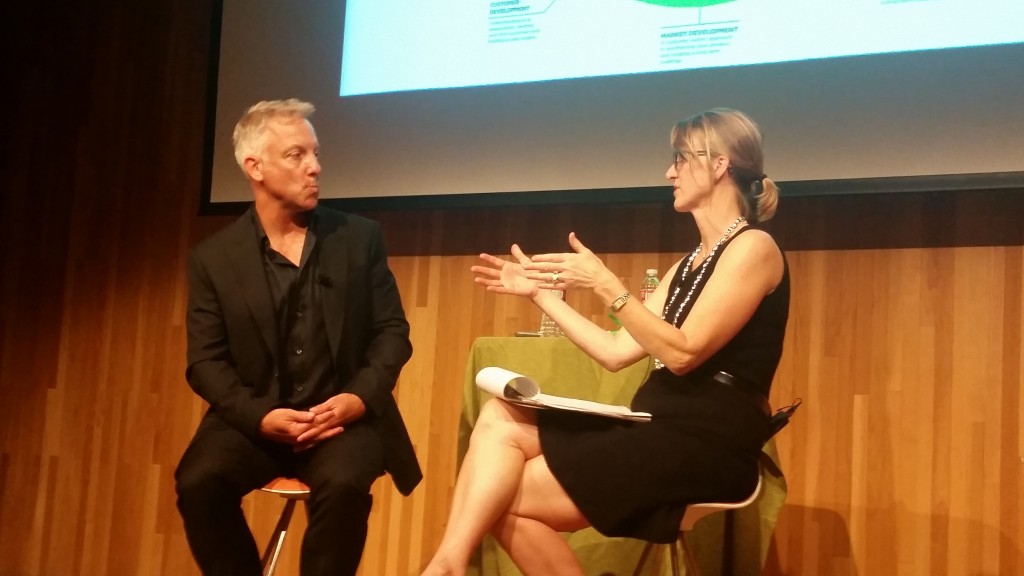
Working for a big company might seem like a dream job, but it wasn’t his dream. Early in his career, the engineer Michael Baum discovered that he wanted to work for small startups. So he did.
His entrepreneurial journey has spanned “25 years, 6 companies, 5 acquisitions, 1 IPO, 3,500 jobs, 150 millionaires and more than $6B in shareholder value,” according to his LinkedIn profile, where he also describes himself as a “startup junkie.”
Baum, the CEO and founder of FOUNDER.org, which invests in young entrepreneurs solving big problems, was this semester’s last Newton Series lecturer. On stage, he held an informal conversation with the students and shared some highlights of his journey.
After confessing that he didn’t like working for big companies, Baum explained that he felt a “huge disconnection” in that environment. It was difficult for him to feel like he was having a real impact on the company’s outcome. So far, he has landed in five big companies, including IBM, Disney and Yahoo.
He also explained why, regardless of what the famous entrepreneur and venture capitalist John Doerr said about the importance of having a mentor, Baum didn’t feel he needed one. He is the kind of entrepreneur who sees something he wants to fix and then becomes obsessed with fixing it. “People who are like that don’t have the mental space for a mentor,” Baum said, adding, “I’m not saying it’s right.”
Baum complemented his computer science studies with an MBA in order to learn more about finances. He advised students who want to start their own companies in the future to “take 10 years,” because it takes such a long time to get big. And “that’s if you are successful,” he added.
He also told the students that if they were going to do something every single day, they should choose something they are passionate about—even if that sounds cliché.
In addition, Baum explained how FOUNDER.org’s 8D Program evaluates its teams of students. Passion, diversification and dedication are the main qualities they search for, as well as the understanding of how to get to the market and what the customer wants.
He emphasized that, as a startup, “you can’t compete with the same message and the same message channels as the big companies,” and that it’s not necessary to have a product ready in order to create a startup. You need to have a good idea.
Finally, Baum recapped that there’s no need to have “a big name in your resume” to get very valuable experience, and advised the students who want to build a startup to join a company in its “very early stages.”
For those who think that can be founders, Baum said they should ask themselves the question, “Are you a founder?” He said that, “You just know,” and added, “A founder has to be a founder, they can’t be anything else.”
